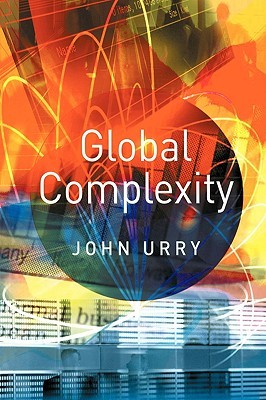
- We will send in 10–14 business days.
- Author: John Urry
- Publisher: Polity Press
- ISBN-10: 0745628176
- ISBN-13: 9780745628172
- Format: 15.2 x 22.9 x 1.4 cm, hardcover
- Language: English
- SAVE -10% with code: EXTRA
Reviews
Description
Global Complexity is a path-breaking book, which examines how the ideas of chaos and complexity can help us to analyse global processes. Urry argues that there are major advantages in thinking about global processes in this way. The idea of complexity emphasizes that systems are balanced between order and chaos, that a system does not necessarily move towards equilibrium and that events are both unpredictable and irreversible in their effects. Hence specific events can have unexpected effects, often distant in time and space from where they occurred.
This book combines new theory with many illustrations of how global processes operate. Urry distinguishes between 'global networks' and 'global fluids', and shows how forms of global emergence develop from the complex relationships between these networks and fluids. He draws out the implications of global complexity for our understanding of social order and argues that complexity requires us to reformulate the main categories of sociology and to reject any globalization thesis that is over-unified, dominant and unambiguous in its effects. Global systems are always 'on the edge of chaos'.
This book will be of particular interest to students and scholars of sociology, politics, geography and economics and to and to all those concerned with rethinking the nature of globalization.
EXTRA 10 % discount with code: EXTRA
The promotion ends in 19d.01:35:01
The discount code is valid when purchasing from 10 €. Discounts do not stack.
- Author: John Urry
- Publisher: Polity Press
- ISBN-10: 0745628176
- ISBN-13: 9780745628172
- Format: 15.2 x 22.9 x 1.4 cm, hardcover
- Language: English English
Global Complexity is a path-breaking book, which examines how the ideas of chaos and complexity can help us to analyse global processes. Urry argues that there are major advantages in thinking about global processes in this way. The idea of complexity emphasizes that systems are balanced between order and chaos, that a system does not necessarily move towards equilibrium and that events are both unpredictable and irreversible in their effects. Hence specific events can have unexpected effects, often distant in time and space from where they occurred.
This book combines new theory with many illustrations of how global processes operate. Urry distinguishes between 'global networks' and 'global fluids', and shows how forms of global emergence develop from the complex relationships between these networks and fluids. He draws out the implications of global complexity for our understanding of social order and argues that complexity requires us to reformulate the main categories of sociology and to reject any globalization thesis that is over-unified, dominant and unambiguous in its effects. Global systems are always 'on the edge of chaos'.
This book will be of particular interest to students and scholars of sociology, politics, geography and economics and to and to all those concerned with rethinking the nature of globalization.


Reviews